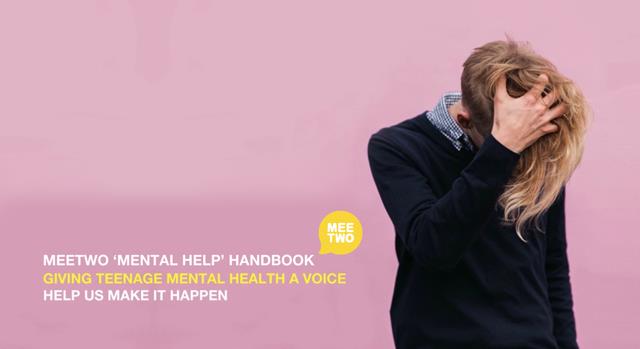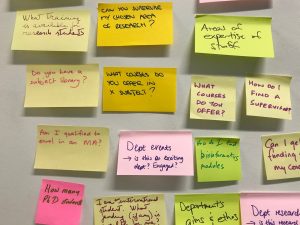The wedding of Prince Harry and Meghan Markle has been hailed as a pivotal moment for multicultural Britain. But Dr William Ackah (Department of Geography) argues that it is just another fleeting false dawn and there will be little lasting, positive impact for Black Britons.
Symbols are important. For some people, seeing Meghan Markle marry into the monarchy, while a Black preacher expounded the word and a Black Choir sang at the ceremony, was viewed as ushering in a new area of racialised harmony and black cultural acceptance at all levels of British society. If blackness is acceptable to the monarchy, then surely it can be embraced by everyone? One can envisage that cascading out from the memories of the day; TV production companies will make documentaries on relationships across cultural and racial boundaries; there will be operas and plays about mixed cultural and racialised identities and new research council funding streams on identity, relationships and difference. Once again, black culture will be examined, explored, explained, celebrated, debated and mined by White people as something new and exotic.
In contrast to the negativity surrounding racialised minorities due to fears over migration and religious and cultural differences, Markle’s Blackness will provide the space for more and more elements of White society to once again be comfortable in talking about how they have Black friends, or how they are down with Stormzy’s lyrics, had a Black choir sing at their wedding and rap lyrically about their love of Jerk chicken. This, I envisage, will be the new language – at least for a while – that will showcase multi-cultural Britain. Meanwhile, the structures of institutionalised racism that leaves the majority of Britain’s black communities at the margins of British society remain unchanged.
We have been here before. Black culture is cool for a time; it is supposedly edgy, hip, and transgressive, and it is useful for British elites to be associated with it in order to project an image of modernity, tolerance and cultural relevance. When London made its bid for the Olympics, it projected a powerful image of itself as a global city a multicultural, multi-ethnic place with a vision of East London as a space and place of opportunity for Black communities and the descendants of migrants from all over the world. This was in contrast to the French bid – fronted by White men and regarded as old fashioned and tired. It could be said that it was the Black and Minority Ethnic Cultural presence that won it for London. Fast forward to today and in East London we have a Queen Elizabeth Park, a Westfield Shopping Complex, the great and the good of elite educational/arts/cultural institutions are moving into the area taking advantage of all the facilities and opportunities. But what has happened to those Black poster children of the Olympic vision that were the catalyst for the change? They apparently have lost their ‘sparkle’ and are being forced out of their homes, businesses and communities and are being erased from the collective consciousness of post-Olympic East London.
Britain has a long history of adoring high profile African Americans and treating them regally whilst perpetrating systematic racialised injustices against its Black British population. Muhammad Ali was a source of fascination and immense entertainment when he boxed and toured Britain in the ‘70s and ‘80s. Martin Luther King was admired and lauded when he preached in Westminster Abbey and garnered honorary doctorates here in the ‘60s. Paul Robeson the legendary singer, actor and political activist was a huge star of the stage here in the late 1920s and early ‘3’s, and spoke to huge admiring crowds in many parts of the country. The same is true of the African American abolitionist Frederick Douglass who spoke to thousands of people across Britain in the late 19th Century. And if it was thought that Meghan Markle was the first to bring gospel music to the attention of royalty one would be mistaken. The Fisk Jubilee Singers, an African American choral group from a Black college in Nashville, sang for Queen Victoria in 1873 and toured Britain and Europe, singing for the elites who were both intrigued and moved by the power of their renditions of the Spirituals.
The British establishment has used and abused black people for centuries, whilst occasionally celebrating and feting them with adoration and praise. The Monarchy and the Church of England, both central to the representation of Blackness as a celebratory theme at the wedding, have been deeply complicit in these enterprises. It was royal charters that endorsed the heinous enterprises of transatlantic enslavement and colonisation and the Church ‘owned’ and profited from the labour of enslaved Africans. And through their missionary endeavours they provided the velvet glove of justification for the iron fist of economic, cultural and social brutalisation of many nations and people in Africa and Asia.
These historical realities, and not just historical niceties, have their contemporary manifestations in the treatment of black and minority ethnic bodies in incidences such as the Grenfell and Windrush scandals and the marginalisation and lack of equitable treatment that Black communities receive here. British institutions want to be portrayed as contributing to a world of love and cultural celebration, but they refuse to deal with the legitimate claims of Black communities for justice and reparations. While these claims for justice continue to be ignored, talk of the wedding as an example of Britain’s successful multiculturalism is, to be frank, bulls**t (for example, Douglas Murray ‘s Spectator blog Meghan Markle and the myth of ‘racist’ Britain Spectator, dated 21 May)
British institutions – political, economic, religious and cultural – are manure-peddling institutions. A few Black flowers do grow and flourish against all the odds in these institutional spaces. And when the Black exceptionalisms do emerge, they are asked to sing, play, run, jump, speak and represent the nation. Some are given knighthoods and honours, and some people do manage to have meaningful relationships in this environment. The institutions then use these small success stories to portray themselves as smelling of roses in relation to ‘diversity’ issues. What the institutions fail to acknowledge, and systematically address, are the numbers of Black people for whom the institutional manure is toxic. And how in some cases the institutional environment leads to death, imprisonment, educational underachievement, poor life expectancy, limited employment prospects, lack of political representation, deportation, poor mental health …. the list goes on and on. It needs more than an interracial romance, a few songs, some mentoring schemes and a Stephen Lawrence day to compensate for all the racist manure and meaningless diversity schemes that British institutions have been peddling in order to placate both minorities and the majority in this country. What Black people require are concrete manifestations of compensations for past wrongs and guarantees of formal equality and justice moving forward. All this other stuff, as beautiful as it looks and happy as it makes people feel, is just bulls**t. Same old empire, just different clothes!
Our ancestors, as enslaved and colonial subjects, built and paid for the maintenance of this system – and now, in the form of tax, we still pay for it. When we complain, we are told look at Meghan, sing and be grateful! Well as far is this country is concerned the song is this: “Sometimes I feel like a motherless child a long way from home”. I wait to be culturally orphaned again, once the fascination with Meghan’s Blackness loses its sparkle.
William Ackah is Lecturer in Department of Geography, read his latest blog on this story.



